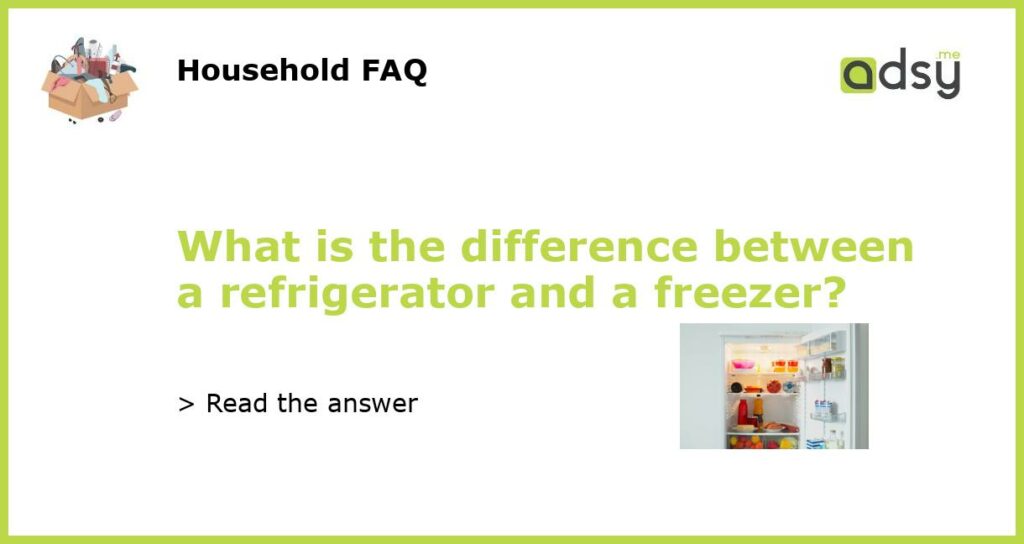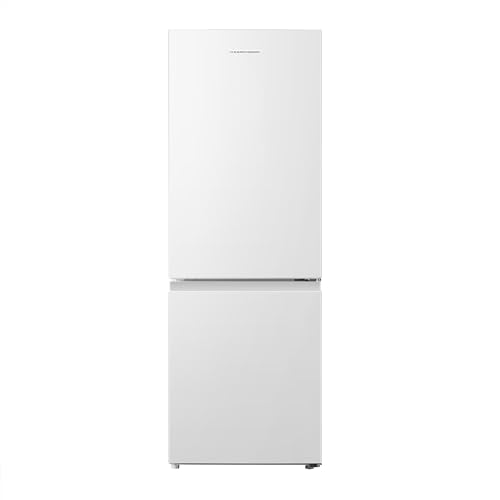Understanding the Difference Between a Refrigerator and a Freezer
Refrigerators and freezers are essential appliances in most households, serving different purposes when it comes to preserving and storing food. While they may seem similar in many ways, there are key differences between the two. Let’s take a closer look at these differences and how they affect the function and use of refrigerators and freezers.
The Temperature Difference
One of the main differences between a refrigerator and a freezer is the temperature at which they operate. A refrigerator typically maintains a temperature range of around 34 to 40 degrees Fahrenheit (1 to 4 degrees Celsius), which is ideal for storing perishable items such as fruits, vegetables, dairy products, and meats for short periods of time. On the other hand, a freezer maintains much lower temperatures, usually around 0 degrees Fahrenheit (-18 degrees Celsius) or lower, which is necessary for freezing food and keeping it preserved for longer durations.
Storage Capacity
Another significant difference between refrigerators and freezers is the storage capacity they offer. In general, refrigerators have more storage space than freezers. This is because refrigerators are designed to store a variety of food items that require different temperature conditions, including fresh produce and beverages, which require more space. Freezers, on the other hand, are intended for long-term storage and can accommodate more frozen items such as meats, pre-cooked meals, and frozen desserts.
Food Preservation Methods
The primary function of a refrigerator is to slow down the growth of bacteria and other microorganisms in food by keeping it at a low temperature. This process helps to preserve the freshness and quality of the food for a limited period. Freezers, on the other hand, use a different method to preserve food. By freezing food rapidly at lower temperatures, freezers effectively halt the growth of bacteria and other microbes, allowing food to be preserved for much longer periods without spoilage.
Usage and Access
The way we use refrigerators and freezers also differs based on their intended purposes. Refrigerators are typically accessed more frequently, as they contain items that are used on a daily basis, such as milk, eggs, and leftovers. Freezers, on the other hand, are used less frequently and are often accessed for specific purposes, such as retrieving pre-frozen meals or grabbing ice cream for dessert. The less frequent use of freezers also allows for long-term storage of food items that may not be consumed immediately.
While refrigerators and freezers may seem similar on the surface, there are distinct differences between the two appliances. From temperature ranges to storage capacity and preservation methods, each serves its own purpose in preserving and storing food. Understanding these differences can help us make the most out of these essential appliances in our homes.




![COMFEE' RCD93WH1(E) A Under Counter Fridge, 93L Fridge with Cooler Box, Interior Light, Removable Glass Shelf, Reversible Door Hinge, Adjustable Legs, White [Energy Class F]](https://m.media-amazon.com/images/I/51SGR0VK5ZL.jpg)

